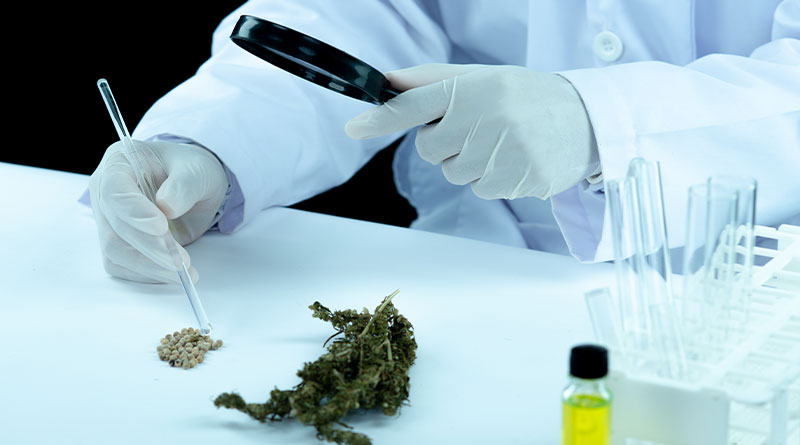Progressive dysfunction of the neurological system and the bodily systems it controls characterises Parkinson’s disease. Early signs appear gradually. The initial sign may be a tremor in one hand. Although tremors are characteristic of this illness, they can also cause a person’s movements to become rigid or slow.
The cannabis plant contains the chemical component cannabidiol (CBD). Cannabinoids are the name for these chemical substances. There are potentially hundreds of such chemicals in cannabis, but only a small subset has received significant attention from researchers.
CBD has been linked to benefits, including reduced anxiety, pain relief, and neuroprotective effects. Recent years have seen an uptick in interest in the possible advantages to the brain and nervous system, particularly for those with neurological illnesses like Parkinson’s disease (PD). Keep reading to know more about CBD Oil for Parkinson’s Disease.
How Would You Clarify Parkinson’s Disease?
Degeneration of nerve cells in the substantia nigra (a brain region responsible for movement) is the cause of Parkinson’s disease, a degenerative condition. As a result of damage or death, these nerve cells cannot create dopamine. Patients with an 80% or greater loss of dopamine-producing cells in the substantia nigra display symptoms of Parkinson’s disease, according to studies.
In most cases, we still don’t know what causes Parkinson’s disease. But accelerated ageing, genetic factors, environmental pollutants, and oxidative stress have all been proposed to explain the condition. A single mutation in a gene for Parkinson’s disease (originally reported in 1997) was found in 2005; this mutation is thought to be responsible for 5% of hereditary cases.
What is CBD?
Cannabidiol (CBD) is a chemical component of the cannabis plant, sometimes called hemp. Seizure medication containing CBD is currently on the market in the United States.
The Cannabis sativa plant contains about 80 different compounds, collectively called cannabinoids. The cannabinoid known as delta-9-tetrahydrocannabinol (THC) has gained the most notoriety. Conversely, CBD comes from hemp, a Cannabis sativa with very low levels of the psychoactive cannabinoid THC. The effects of CBD on the brain’s chemicals are distinct from those of THC.
Seizure disorder (epilepsy) is treated with a prescription version of CBD. There is insufficient evidence to support the use of CBD to treat anxiety, pain, dystonia (a disorder affecting the muscles), Parkinson’s disease, Crohn’s disease, and many other illnesses.
Does CBD Help Parkinson’s Patients?
Several research has hinted that CBD might help with Parkinson’s symptoms. The issue is that most of these studies are either tiny, of poor quality, or conducted on animals rather than humans.
Since the FDA does not oversee CBD products, there is no assurance of uniform product purity, which makes it more challenging to obtain the appropriate dosage.
A 2019 article suggests cannabinoids like CBD oil may help cure Parkinson’s by lowering brain inflammation.
Epidiolex, a CBD medicine licenced by the FDA to treat seizures, was examined in a 2020 research for Parkinson’s. Three original 13 volunteers dropped out of the trial due to adverse effects. The remaining 10 people’s Parkinson’s disease symptoms improved. However, the researchers believe that the high dose of the medicine contributed to the development of increased liver enzymes in 5 of the 13 patients.
Six out of seven investigations on preclinical models of Parkinson’s disease found that CBD had neuroprotective effects.
Patients in a randomised controlled trial, a case series, and an open-label study all reported positive experiences with CBD Oil for Parkinson’s disease. Non-motor Parkinson’s symptoms also improved, as observed by all three investigations. Traditional treatments for Parkinson’s disease may have a harder time alleviating non-motor symptoms.
How Do You Recommend CBD Oil for Parkinson’s Disease?
If you’re new to CBD and wondering how to take it, you may wonder what the ideal method is for those with Parkinson’s.
Some of the many CBD formulations available are:
- Tinctures and Oils: These CBD solutions can be taken orally or sublingually (under the tongue). This could be an excellent alternative if you have trouble chewing or swallowing tablets.
- Lotions and Creams: Lotions and creams infused with CBD may help relieve pain and stiffness in the hands and joints, although their effects may not become apparent for several hours.
- Pills and Capsules: While the benefits of taking CBD in tablet or capsule form may be delayed, this method may be preferable for those whose tremors prohibit them from accurately measuring a liquid dose.
- Edibles: CBD gummies are widely used. CBD is also present in a wide variety of different foods, albeit the dosing may be off. Edibles are a stealthy way to get your CBD fix.
- Vape Pens: Inhaling a vaporised form of CBD oil is one option. If you take this path, you will notice results soon. However, vaping has been linked to health problems like coughing and sore throat and may even cause harm to lung tissue.
How Quickly Do The Effects Of CBD Oil for Parkinson’s Disease Show Up?
Since 1% of the over-60 population is diagnosed with Parkinson’s disease each year, the body of research on utilising CBD for symptoms of Parkinson’s disease is rapidly expanding.1 The neurological system is affected by Parkinson’s disease. Damage or death occurs in regions of the brain that generate dopamine, which is used to communicate with the body to control movement. This leads to shaking, rigidity, loss of facial expression, and instability.
CBD has shown promise for treating motor impairment associated with Parkinson’s and other movement disorders. Animal models of Parkinson’s disease showed that CBD had a preventive effect on the onset of aberrant movement signs.
What Is The FDA’s Take on CBD Oil For Parkinson’s Disease?
The Food and Drug Administration has not yet cleared CBD oil to treat Parkinson’s. In reality, no cannabis-based medicines are approved by the FDA for this illness. Epidiolex, a CBD-based pharmaceutical, was approved by the FDA to treat two forms of drug-resistant epilepsy.
Epidiolex is being studied by scientists at the University of Colorado for its potential to alleviate Parkinson’s disease-related tremors. Phase two of the trial has begun.
Conclusion
CBD oil, along with other cannabis products, may help some people with Parkinson’s disease control their symptoms and lessen the negative effects of their medicine. However, studies have yet to demonstrate the efficacy or safety of CBD oil as a therapeutic.
Those interested in CBD should consult a doctor versed in the substance and begin with a small dose. They should also discuss the possibility of combining CBD Oil for Parkinson’s Disease.
FAQs
Q1: How much CBD oil should a person with Parkinson’s take?
Ans: Common PD symptoms were also investigated to see if CBD could alleviate them. CBD has been shown to have a central nervous system effect, such as seizure reduction at 25 mg/kg/day, and is well tolerated at dosages up to 1500 mg/day,13-15 or 13 mg/kg/day, according to a review of the scientific literature.
Q2: Does cannabidiol (CBD) reduce tremors associated with Parkinson’s disease?
Ans: People struggling with Parkinson’s disease now have greater access to natural remedies. Cannabidiol, popularly known as CBD, has shown promise in alleviating tremors and other Parkinson’s symptoms in scientific studies.
Q3: Are there any negative reactions to CBD oil?
Ans: It’s important to be aware of the potential downsides to using CBD Oil for Parkinson’s Disease. While CBD is generally well accepted, it is possible to experience some unwanted side effects. CBD may also interact with the blood-thinning drugs you are already using.
Sahil Sachdeva is the Founder of curemedoc.com and a Digital Marketing professional with 6+ years of experience. If you need help in Content writing and want to increase your website ranking, connect with him, as he has some premium websites where you can share blogs with DoFollow links and increase your website’s ranking on Google.





